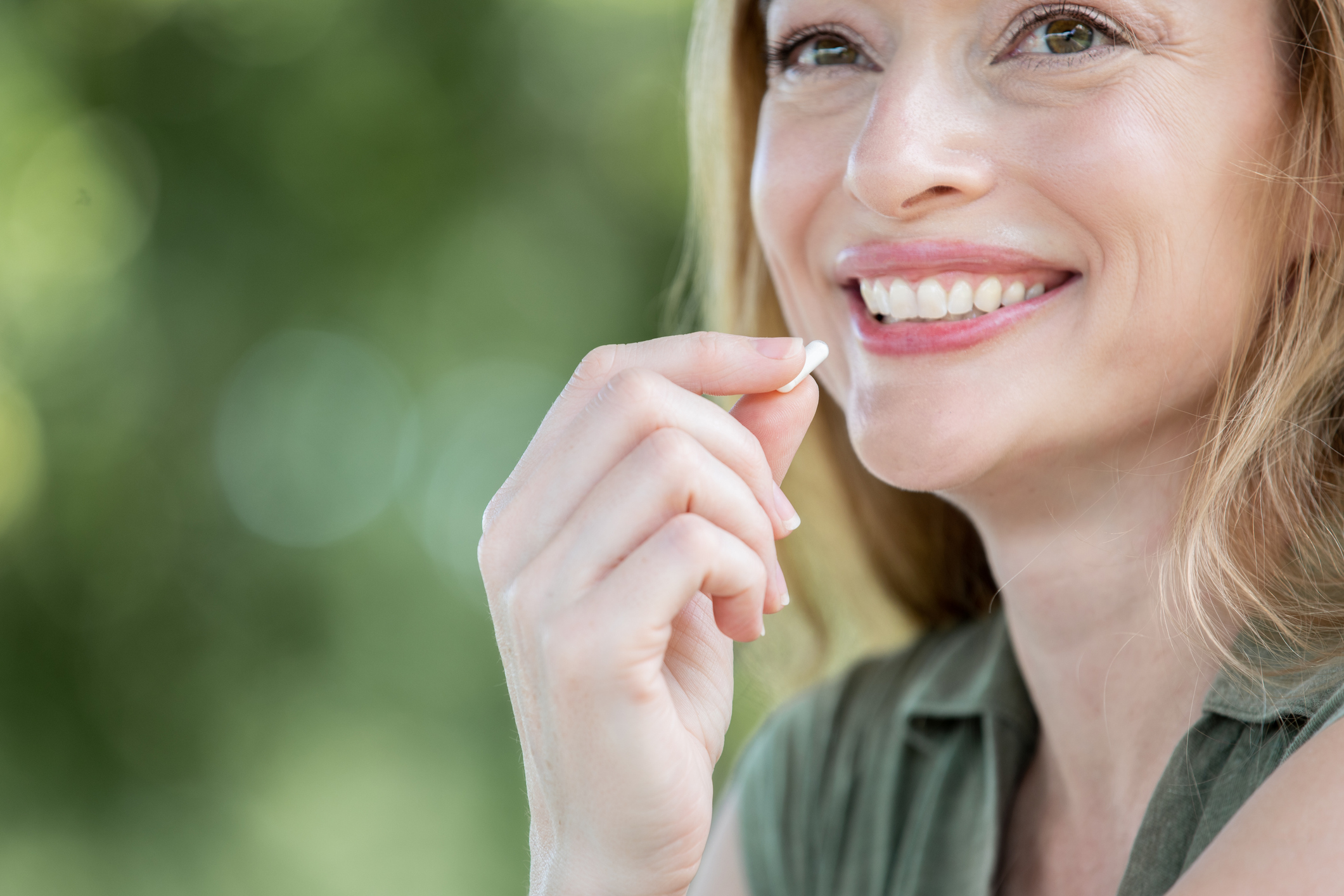Get Easy Health Digest™ in your inbox and don’t miss a thing when you subscribe today. Plus, get the free bonus report, Mother Nature’s Tips, Tricks and Remedies for Cholesterol, Blood Pressure & Blood Sugar as my way of saying welcome to the community!
The one-a-day vitamin that slashed death from cancer

Approximately 35% of adults in the United States have a vitamin D deficiency according to some reports. But it may actually be lower…
Part of the reason is that most doctors don’t test patient levels unless asked, and many insurances won’t cover vitamin D testing like they do other blood panels. So, often, we rely on studies that focus on specific groups to understand the true depth of vitamin deficiencies.
In one such study among nursing home residents, vitamin D deficiency was as high as 60 percent, and in a general hospital ward where patients for various reasons were admitted, 57 percent were found to be deficient. Another study found two-thirds of young adults living in Boston were vitamin D insufficient at winter’s end.
Where do you think your vitamin D levels stand? And why does it matter?
Most people know that Vitamin D plays an important role in keeping our muscles and bones strong as we age.
But the ties between vitamin D and the risk of certain cancers are also undeniable.
For example, one study looked at the amount of sunlight exposure people commonly experience across 186 different countries. In countries where people experience lower levels of UVB light, they also reported higher rates of colorectal cancer.
Now, we’re finding out that it’s about more than how much vitamin D you get. It’s also about how frequently you get it…
Daily D3 reduces mortality
Dr. Ben Schöttker, an epidemiologist at the German Cancer Research Center, conducted a systematic literature search that re-evaluated 14 high-quality studies on the effect of vitamin D3 on cancer, with a total of nearly 105,000 participants.
“Based on current studies, vitamin D3 supplementation probably does not protect against developing cancer, but it could reduce the likelihood of dying from cancer,” he said.
However, previous studies on cancer have yielded varied results. In fact, the VITAL study found a 38 percent reduction in the risk of developing advanced cancer with vitamin D supplementation.
In Dr. Schöttker’s review of the 14 studies, no significant results were revealed until the studies were divided according to whether vitamin D was given once a day or at longer intervals. That’s when something very relevant emerged…
When people took a higher dose of vitamin D at longer intervals (for example, once a week), there was no effect on cancer mortality.
But when vitamin D was given once a day, even in a lower dose, the researchers saw a twelve percent reduction in cancer mortality.
The effect was more pronounced in people who were already vitamin D deficient. Additionally, it appeared that people 70 and older benefited the most from daily vitamin D3 therapy and that it was most effective when it had been started prior to a cancer diagnosis.
Dr. Schottker also noted the better efficacy of daily doses of vitamin D3 due to the regular bioavailability of the active agent, the hormone 1,25-dihydroxyvitamin D.
1,25-dihydroxyvitamin D is only produced by reactions of vitamin D in the body and is thought to inhibit tumor growth.
Related: The daily vitamin that could keep hypertension at bay
A better understanding of vitamin D supplementation
Studies like this one, and one that recently found vitamin D is not a one-size-fits-all vitamin because of how it is metabolized, and another that discovered important differences between types of vitamin D, are helping researchers understand that the devil is in the details when it comes to understanding what this vitamin is capable of.
With this information, researchers may be able to standardize factors they’re learning can have a bearing on study outcomes.
In the meantime, the most important thing to understand about vitamin D is supplementation. Most people don’t realize that the current RDA is only the minimum required for bone health.
But more and more doctors are recommending a therapeutic dosage of 5000 IUs daily. In fact, to raise deficient levels, a doctor may prescribe up to 10,000 IUs daily for several weeks, then taper off.
Just remember that since vitamin D3 is a fat-soluble vitamin, it’s important to take it with some sort of fats or oils to make sure you’re able to absorb it and grab all its benefits.
Considering all the health benefits of vitamin D3, you can’t afford not to promote sufficient levels.
Editor’s note: Discover how to live a cancer prevention lifestyle — using foods, vitamins, minerals and herbs — as well as little-known therapies allowed in other countries but denied to you by American mainstream medicine. Click here to discover Surviving Cancer! A Comprehensive Guide to Understanding the Causes, Treatments and Big Business Behind Medicine’s Most Frightening Diagnosis!
Sources:
Reduced cancer mortality with daily vitamin D intake — Eureka Alert
Efficacy of vitamin D3 supplementation on cancer mortality: Systematic review and individual patient data meta-analysis of randomised controlled trials — Ageing Research Reviews
Vitamin D Deficiency and Related Disorders — Medscape
Vitamin D Deficiency May Promote Spread of Some Breast Cancers — National Institutes of Health/National Cancer Institute
Vitamin D Deficiency — Cleveland Clinic
Study puts cancer patient vitamin D deficiency under the spotlight — NutraIngredients Europe












